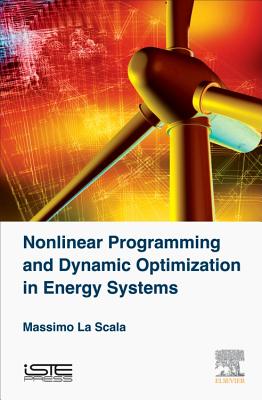Distributed Economic Operation in Smart Grid: Model-Based and Model-Free Perspectives
Qin, Jiahu, Wan, Yanni, Li, Fangyuan
- 出版商: Springer
- 出版日期: 2024-01-27
- 售價: $6,150
- 貴賓價: 9.5 折 $5,843
- 語言: 英文
- 頁數: 237
- 裝訂: Quality Paper - also called trade paper
- ISBN: 9811985960
- ISBN-13: 9789811985966
海外代購書籍(需單獨結帳)
商品描述
作者簡介
Jiahu Qin (Senior Member, IEEE) received his first Ph.D. degree in control science and engineering from Harbin Institute of Technology in 2012, and the second Ph.D. degree in systems and control from The Australian National University, Australia, in 2014. He is currently a Professor at the Department of Automation, University of Science and Technology of China. His current research interests include autonomous intelligent systems, cyber-physical systems, and human-robot interaction.
Yanni Wan received the B.E. degree in automation from Ocean University of China, Qingdao, China, in 2016, and the Ph.D. degree in control science and engineering from University of Science and Technology of China, Hefei, China, in 2022. She is currently a Lecturer at the School of Physics and Electronic-Electrical Engineering, Ningxia University, Yinchuan, China. Her research interests include distributed energy management in smart grids and charging/discharging scheduling of EVs.
Fangyuan Li(Member, IEEE) received the B.E. degree in electrical engineering and its automation from Southwest Jiaotong University, Chengdu, China, in 2014, and the Ph.D. degree in control science and engineering from University of Science and Technology of China, Hefei, China, in 2019. He is currently an Associate Professor with the School of Electrical and Information Engineering, Zhengzhou University, Zhengzhou, China. His research interests include distributed optimization and control in multi-agent systems and distributed energy management in smart grids.
Yu Kang (Senior Member, IEEE) received the Ph.D. degree in control theory and control engineering from University of Science and Technology of China, Hefei, China, in 2005. He is currently a Professor with the Department of Automation and the Institute of Advanced Technology, University of Science and Technology of China. His current research interests include monitoring of vehicle emissions, adaptive/robust control, variable structure control, mobile manipulator, and Markovian jump systems.
Weiming Fu (Member, IEEE) received the B.E. degree in automation and the Ph.D. degree in control science and engineering from University of Science and Technology of China, Hefei, China, in 2014 and 2020, respectively. He is currently an Associate Professor with the Department of Automation, University of Science and Technology of China. His research interests include consensus in multi-agent systems and security in cyber-physical systems.






























